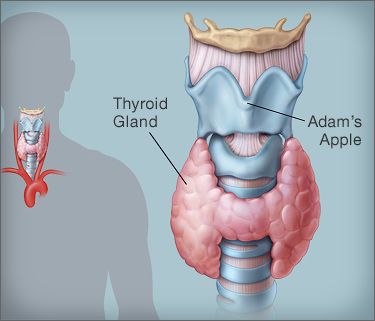What are the natural remedies for hypothyroidism?
What is hypothyroidism?
As per modern Aspect:
Hypothyroid refers to an illness in which there is the low secretion of hormones of the thyroid gland that results in constipation, excessive weight gain, feeling of tiredness, etc.
As per Ayurveda Aspect:
In Ayurveda, the thyroid gland is correlated with Avatu.Vitiated Vata and pitta depletes the Ojas (innate immunity) and this vitiated Vata imbalance the Kapha also.

Its causes are Excessive intake of hot, dry and light diet.
What are the causes of hypothyroidism?
- Individuals more than 60 years of age are more prone.
- It is more prevalent in women who are above 60.
Common causes are:
- Autoimmune diseases like type 1 diabetes
- Deficiency of nutrients such as zinc, copper, and chromium
- Surgery of the thyroid gland
- Dysfunctional Pituitary gland
- Pregnancy
- Radiation therapy
- Deficiency of vitamin B12 and C.
What are the symptoms of hypothyroidism?
Symptoms include:
- Weight gain
- Fatigue
- Dry skin
- Depression
- Premature graying of hairs
- Sensitivity to cold temperature
- Thinning and dry hairs
- Muscle stiffness
- Delayed mental growth
- Pain in joints
- Menstrual problems
- High blood pressure
What are the natural remedies for hypothyroidism?
Some natural remedies are:
- Essential Oils:
- Frankincense oil:
- Rosemary oil:
1) Frankincense Oil:
Frankincense oil acts as an immune booster, pain reliever and also acts as an anti-inflammatory that reduces the inflammation. It is very helpful in balancing hormonal levels.
Steps to follow:
- Mix a few drops of frankincense oil with coconut oil.
- Apply this mixture under the feet and base of the throat.
- Do this daily.
2) Rosemary Oil:
This oil helps in regulating the secretion of thyroid hormones and also helps in reducing other symptoms such as inflammation.
How to Use
- Add 3-4 drops of rosemary oil in a tablespoon of coconut oil and apply this oil over the acupressure points such as the base of the throat.
- Massage for a few minutes until it is absorbed by the skin.
Flax Seeds
Flax seeds are rich in omega-3 fatty acids, magnesium and vitamin B12 in which fatty acids are helpful in inducing the production of thyroid hormones. Vitamin B12 and magnesium are helpful in restoring body functions. They have the phytoestrogenic property that helps in supporting the sex hormones and supports the thyroid gland.
Steps to follow:
- Add one tablespoon of flaxseeds powder in a glass of milk.
- Mix it well and consume it 1-2 times daily.
Ginger:
Ginger is rich in magnesium, potassium and some polyphenols such as gingerol. It acts as an anti-inflammatory that reduces the inflammation and stabilizes the overactivity of the thyroid gland.
Steps to follow:
- Add an inch of ginger in a cup of hot water.
- Let it steep for 8 -10 minutes.
- Allow it to cool down and add a little honey and drink this immediately.
Another step:
- Chew small bits of ginger daily.
Guggul:
Guggul is a type of resin which is produced from the guggul plant. It contains guggulsterone that can help in fighting against hypothyroidism. It is useful in treating acne and also helpful in losing weight.
Step to follow:
- Consume 25 mg of guggul supplements daily.
Coconut oil:
Coconut oil contains medium-chain fatty acids and natural saturated fats that can help in increasing body temperature and metabolism and also helpful in losing weight.
Steps to follow:
- Consume 1-2 teaspoons of coconut oil directly or indirectly or by adding it to a salad or dish.
- Also used as a substitute for cooking.
Vitamins:
Vitamin B12 stimulates the functioning of the thyroid gland and vitamin C acts as an antioxidant that helps in fighting against oxidative stress.
Foods rich in Vitamin C and B12:
- Citrus fruits
- Fish
- Eggs
- Meat
- Leafy vegetables
- Dairy products
Vitamin A normalizes the TSH concentrations. It is involved in the secretion of thyroid hormones and also helps in iodine uptake.
Foods rich in Vitamin A:
- Sweet potato
- Carrot
- Mushroom
Vitamin E is very helpful in reducing oxidative stress and also normalizes a healthy immune response that is associated with hypothyroidism.
Asanas that reduces the effect of hypothyroidism:
Ushtrasana (Camel Pose):
Ushtrasana stimulates the thyroid activity because in this asana there is an extension of the neck region and increases the blood circulation towards the neck. This asana is very helpful in treating asthma.
Matsyasana (fish pose):
Matsyasana encourages the blood flow and stretches the neck and throat that stimulates the thyroid gland.
Dhanurasana (Bow pose):
Dhanurasana is very beneficial in treating hypothyroidism because it forces the thyroid gland to produce the hormone that controls the metabolism of the body. It provides relief in menstrual pain and helpful in reducing stress.
Sarvangasana (shoulder stand pose):
Sarvangasana is helpful in maintaining the endocrine system of the body by exerting pressure on the thyroid gland. It also helps in improving the blood circulation that releases the blood into the neck that nourishes the thyroid. It is also beneficial for the functioning of the respiratory and nervous systems. It increases the flexibility of the body and provides strength to the muscles.
Bhujangasana (Cobra pose):
Bhujangasana stretches the neck and throat region that increases the functioning of the thyroid.
Halasana (Plow Pose):
Halasana stimulates the secretion of the thyroid gland and relaxes the autonomous nervous system and provides strengthening to the muscles of the back region.
Setubandhasana (Bridge Pose):
Setubandhasana facilitates the proper flow of blood and oxygen to the brain. This pose is very helpful in treating symptoms that are associated with hypothyroidism. It maintains thyroid activity and also helpful in strengthening the muscles.
Conclusion:
Hypothyroidism refers to the low secretion of hormones by the thyroid gland and other causes such as surgery of thyroid gland, deficiency of nutrients that result in gaining weight, constipation and other symptoms are also mentioned above. It is also discussed according to Ayurveda. Several home remedies which include natural herbs and different asanas are also discussed.
Post Your Ad Here





Comments